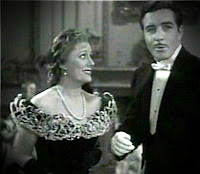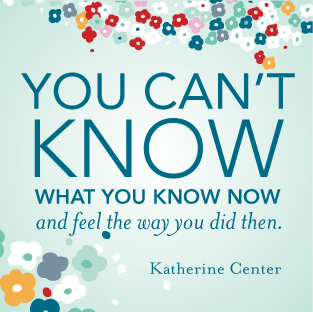 |
One of several broken picture frames
in our niece's Tokyo apartment,
just after the quake. |
March 11, 2011, 6:00 a.m., New York City. My husband's cell phone rings super early and I wake up. I assume it's his work colleague in Tokyo, calling about the story they are is writing on whether
Japan's prime minister will be forced to resign over the latest political funding scandal.
Unusually for me, I can't get back to sleep. I get up and go over to my husband at his computer and ask: "So is Prime Minister Kan stepping down?"
"No, no." Looking over his shoulder, he seems a little surprised to see me. "There's been an earthquake in Japan. A big one."
"Does that mean Kan is saved?" I have a one-track mind, and besides, I'm not really awake, not fully taking things in.
"Saved by the earthquake...for now."
I stagger over to my computer, and the earthquake news starts rolling over me, in waves as big as a tsunami. OMG, can this really be happening?
I turn on CNN. Yes, it's happening. Not only that, but it looks like Japan has just had the kind of earthquake I dreaded for all those years when living in Tokyo.
As I take in the scenes of devastation, part of me breathes a huge sigh of relief. I wasn't there! For me, earthquakes were the biggest wrinkles on the Japan elephant, one of the features of life in that part of the world that I could never quite get used to.
Just as pressure kept building under the plates of the earth's crust that lie beneath the Japan Islands, pressure kept building inside the worry-wart region of my brain: how would I cope if the next really big earthquake struck? (Question inside my question: What was a nice East Coast girl like me doing in an earthquake-prone country like this?)
But relief at having escaped that fate is quickly followed by guilt. Why am I thinking about myself rather than others less fortunate?
The people who've lost their lives or loved ones.
The people who are still alive but surrounded by water and debris with no way out.
The people who made it to makeshift shelter but are desperate for food, water and heating...
I'm thinking of the victims and I'm also thinking of places. Years ago, I went to
Sendai on a company trip when I was working for a Japanese advertising agency. Sendai is of course the city in Japan that was closest to the quake's epicenter. It bore most of the brunt of the tsunami.
My work colleagues and I spent a pleasant morning touring nearby
Matsushima Bay, ranked as being one of Japan's most famous sights for its many small islands (
shima) covered in pine trees (
matsu).
The sea looked so tranquil on that day. Never in a million years did I imagine it would one day generate huge waves that would pummel the Japanese coastline.
Our word "tsunami" comes from Japanese. I guess I should have known better?
The Ghost of Earthquakes Past
The last major earthquake in the Tokyo area was the
Great Kantō Earthquake of 1923 (7.9). It claimed 140,000 lives, mainly from
firestorms. The quake took place in the middle of the day, when many people were cooking rice. Fire spread rapidly due to high winds from a nearby typhoon.
According to seismologists, such major quakes are periodic, occurring every sixty years or so. For the past 25 years, they've been predicting another big quake along a major plate boundary southwest of Tokyo, which like its 1923 predecessor, is likely to devastate Tokyo, Yokohama, and Shizuoka.
No one was therefore expecting the
Great Hanshin or Kobe earthquake (7.3) of 1995. I was living in Tokyo at the time and remember watching in disbelief as some 200,000 buildings collapsed, along with much of the city's transportation infrastructure. The death toll rose to more than 6,000. Some 26,000 were injured.
Likewise, no one was expecting a massive quake in the northeastern part of Honshu, which like Kobe was not considered one of the island's most vulnerable areas. The
Sendai earthquake occurred in a subduction zone, where the Pacific tectonic plate slides beneath the North American one. The plate boundary off the coast of Sendai may not have suffered a rupture like this for more than 1,000 years.
Earthquake Drill!
 |
| ARK Mori Building, Tokyo |
Even in Tokyo, which was far from the epicenter, the March 11 quake struck hard, with buildings "swaying like trees in a breeze" as one American visitor put it.
Hearing such accounts brings back vivid memories of my own time in the city.
"ML-san, you go first!" my Japanese colleagues cry. We are standing on the plaza next to the
ARK Mori Building, the 37-floor office building near the
Roppongi area of Tokyo, participating in a mandatory earthquake drill. Our task is to make our way through a tent where they've simulated the kind of fire that might take place in the wake of a catastrophic earthquake.
The next thing I know, I am on my hands and knees, trying to feel out the edges of tent. I can't see anything, the smoke is so thick.
Later I tell off my colleagues for putting me in such a frightening, humiliating position. They laugh and say it was for my own good.
Around this time, I decide I don't like working in a skyscraper. Every time we have a tremor, the building sways, and I get seasick — and suffer from severe headaches for about a week afterwards.
After this drill I seriously consider getting an earthquake kit, with transistor radio, bottled water, flashlight and so on.
In the end, I don't bother with the kit, but I do get a small flashlight that I keep in my purse, as a kind of talisman to ward off the Big One.
Minor Tremors Can Be Fun
Upon learning of Japan's monster quake, I reflect, as I have countless times before, on what a difference a few
shindo (seismic intensity, literally "degree of shaking") can make. Believe it or not, little earthquakes can be fun.
I'm thinking all the way back to my first sojourn in Japan, on a research exchange in
Yokosuka, about 31 miles south of Tokyo.
I've just come home from a drinking night with some Japanese friends. I fall asleep as soon as my head touches the futon on the tatami mat floor.
I awaken around 3:00 a.m., noticing the pendant lamp on the ceiling swaying around.
Am I still drunk, or is this my first earthquake?
If the latter, it's not as bad as I thought.
Fast forward to several years later, and I am lying in bed in my apartment in central Tokyo. It's again around 3:00 a.m., and the building is shaking like crazy.
I try to picture myself heading out to the local shelter dressed in a nightgown and with my hair in curlers. "Just not happening!" I turn on my side and go back to sleep, an expression of amusement on my face.
Even during the daytime, the little ones can be fun. They are a conversation piece (where were you when it happened?) and a meeting stopper/interrupter, something office workers relish as a break in their routines.
There's also a practical reason for liking the less serious tremblors. The more little earthquakes you have, the less likely a big one is. Pressure is being released instead of building.
My Only Big Earthquake Experience, and a Moderate One at That
When God-awful things happen to innocent people, other human beings can find it traumatizing as well. They tend to relive emotions from similar, or even remotely similar, events in their own lives.
This time, because I actually lived in Japan, I'm replaying in my head my first scary quake, even though it doesn't in any way approach the scariness of the March 11 quake, the largest in Japan in recorded history.
I'm back in Yokosuka, sitting in a packed-out medical clinic, the only non-Japanese in the room.
I know only a few words of Japanese and am feeling a little intimidated, especially as I'm surrounded by people all of whom seem to be staring at me.
Actually, I can't really blame them. Most of the Americans who live around here belong to the
U.S. naval base. They have their own doctors. That makes me an oddity in a public health clinic.
Eventually, my name is called, and I find myself in one of the doctor's cubicles. His desk is rather cluttered, and he, too, looks disheveled. I wonder if he's overworked and underpaid? He says he doesn't speak much English. I say I don't speak much Japanese.
Just at this moment, the room begins to shake. Nurses start running back in forth, and I hear some of the patients in the waiting room screaming "
Jishin!"
"Earthquake?" I venture to the doctor. (Talk about learning language in context!)
He is sitting back in his chair, with his eyes closed, looking very Zen.
"Yes, earthquake," he says very slowly in English.
"Um...should we get under the desk?" The books on the shelf above us are rattling. I don't fancy a medical tome falling on my head.
"It's...okay," he says, and at that very moment, the shaking, which has been gaining in intensity, subsides.
Later I find out it was a moderate earthquake (6.7), and I congratulate myself for having the good sense not to take the pedestrian flyover when walking back home from the doctor's.
The Morning after the Tohoku Kantō Great Earthquake
March 12, 2011. I wake up today thinking about how much I admire the Japanese people for their
gaman, or stoicism, in the face of major disaster.
So many of them are reacting to this catastrophic event with dignity and calm. Even more incredibly, some in the Sendai region are already hard at work clearing out the mud and rubble from their homes and other properties.
As for me, I'm starting to fret again. What if this earthquake is just the prelude to another, bigger one, as
happened so recently in New Zealand?
Seismologists by their own admission are appallingly bad at predicting where and when the next deadly quake will strike, let alone the conditions that will produce a tsunami. I'm now thinking we should implore our family and friends in Japan to consider living somewhere other than the
Pacific Ring of Fire.
Perhaps I'm overreacting? Moving is no guarantee against being blindsided by disaster, whether natural or man-made.
Speaking of which, Japan's natural disaster appears to have precipitated a manmade one, as officials now presume that partial meltdowns have occurred at two nuclear power plants. (Will horrors never cease?)
But back to my main point: no one here in NYC anticipated 9/11. Who's to say another place will necessarily prove safer?
Still, there is something a little creepy about not being able to trust the earth beneath one's feet.
And what about the water? I am remembering the waters of Matsushima again, so blissfully tranquil that even the famed Edo poet
Matsuo Bashō was at a loss for words.
And now it's our turn to be nonplussed. In the battle of Man vs. Nature, it can be hard to remember that Nature holds a lot more cards. Or to put it in terms of this blog's central metaphor: don't be seduced by the elephant's majesty!
Question: Where were you when you heard about Japan's big quake, and what were your first reactions and thoughts?















































